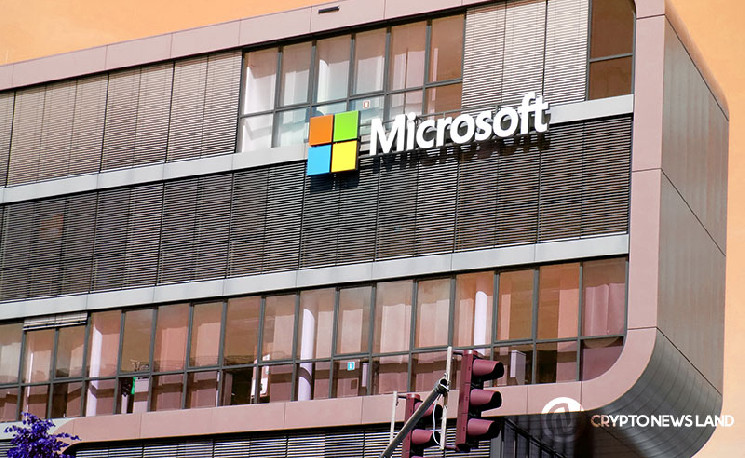- Microsoft is expanding its blockchain platform by adding Ripple and Ethereum for better development tools.
- Azure Blockchain helps companies test and create blockchain solutions with easy-to-use features for faster progress.
- Ripple’s inclusion in Azure supports cross-border payment systems research, opening new opportunities for global financial innovations.
Microsoft has taken another step forward in technological innovation by adding Ethereum and Ripple protocols to its Azure Blockchain platform. The addition improves the functionality of the platform and provides companies with advanced tools for developing blockchain applications and testing foreign monetary systems.
Will Microsoft add $XRP to its corporate coffers? pic.twitter.com/OXCrAipAtU
— Altcoin Daily (@AltcoinDailyio) December 2, 2024
Azure Blockchain is attracting growing interest from developers
In November, Microsoft launched its blockchain initiative at Ethereum’s DevCon event. It initially focused on Ethereum but later added Ripple to expand its research capabilities. Marley Gray, the company’s Director of Tech Strategy, said the platform had been received with great enthusiasm and broad interest from businesses.
The Azure Blockchain as a Service platform allows users to create and test prototypes quickly and without significant financial risk. The development environment is designed to support innovation with features such as one-click deployment, allowing faster experimentation and simplifying the implementation of new ideas. Companies find the platform valuable for testing blockchain applications in a cost-effective manner.
Ripple plays a key role in Blockchain research
Microsoft began integrating Ripple’s protocol into Azure in 2015 to provide developers with tools to explore international payments solutions. This integration reflects Microsoft’s commitment to leverage various blockchain technologies to meet the needs of the evolving financial landscape.
In addition, in 2020, Ripple became part of the Faster Banking Council, a group that also includes Microsoft and focuses on improving financing systems worldwide. The collaboration demonstrates blockchain’s potential in revolutionizing the financial industry and expanding its adoption for real-world use.
Azure Blockchain’s ability to integrate multiple protocols, including Ripple and Ethereum, gives developers flexibility in creating diverse blockchain solutions. This focus on versatility aligns with Microsoft’s goal to support businesses through advanced tools that drive innovation.
Customer engagement and future directions
Companies from all industries use Azure to test their implementations and build prototypes for their projects. Hackathons and workshops organized on the platform promote creativity and stimulate the development of new solutions.
The flexibility of the platform allows developers to experiment with different technologies, making it the preferred choice for many organizations. While Microsoft continues to improve its services, it remains unclear whether Bitcoin’s blockchain will eventually be added to the platform.
Azure Blockchain’s integration of Ethereum and Ripple demonstrates Microsoft’s role in advancing blockchain innovation and supporting companies as they explore this transformative innovation.

